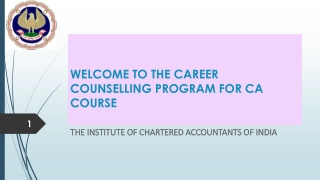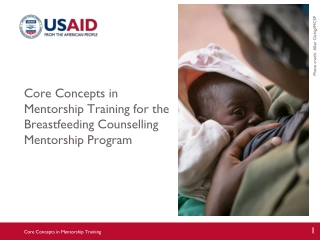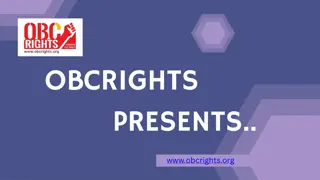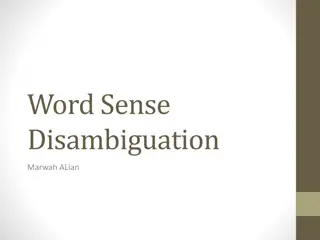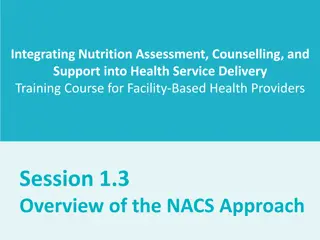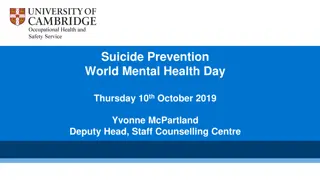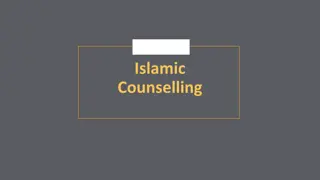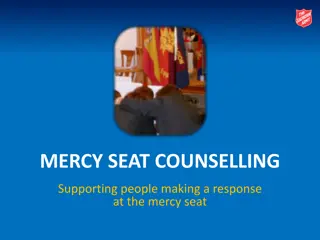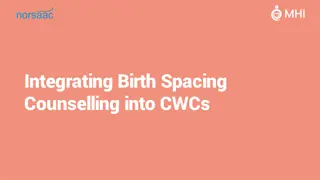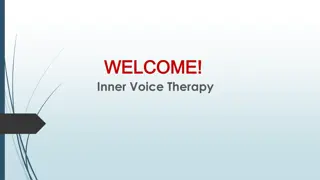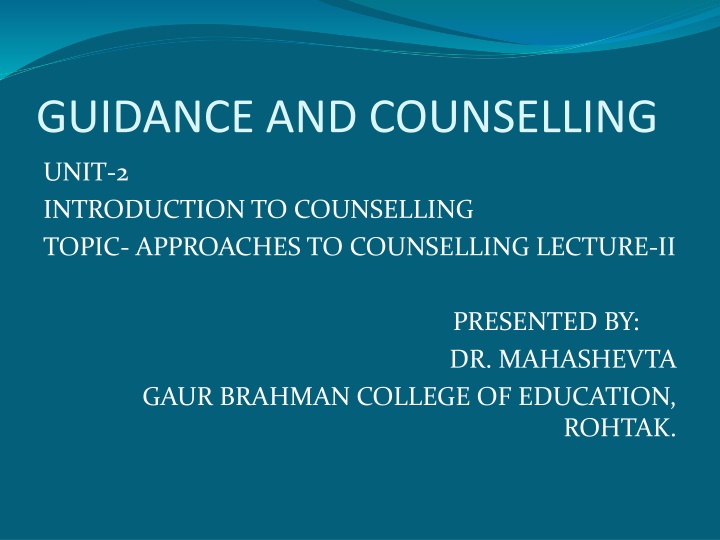
Non-directive Approach to Counseling: Understanding Client-centered Counseling
Explore the non-directive approach to counseling, where the counselor facilitates a supportive environment for clients to freely express their thoughts and emotions. Learn about Carl Rogers' client-oriented counseling method and the benefits and limitations of this approach in promoting self-awareness and personal growth.
Download Presentation

Please find below an Image/Link to download the presentation.
The content on the website is provided AS IS for your information and personal use only. It may not be sold, licensed, or shared on other websites without obtaining consent from the author. If you encounter any issues during the download, it is possible that the publisher has removed the file from their server.
You are allowed to download the files provided on this website for personal or commercial use, subject to the condition that they are used lawfully. All files are the property of their respective owners.
The content on the website is provided AS IS for your information and personal use only. It may not be sold, licensed, or shared on other websites without obtaining consent from the author.
E N D
Presentation Transcript
GUIDANCE AND COUNSELLING UNIT-2 INTRODUCTION TO COUNSELLING TOPIC- APPROACHES TO COUNSELLING LECTURE-II PRESENTED BY: DR. MAHASHEVTA GAUR BRAHMAN COLLEGE OF EDUCATION, ROHTAK.
Non-directive Approach to Counselling In this approach, the counsellor provides an atmosphere in which the client can fully explore his/her own thoughts and feelings freely without any fear or pressure. Thus by making the counselee understand his/her potentialities, the counsellor acts as a catalytic agent. Here, the source of data is the client him/herself and the responsibility for change rests with the counselee rather than with the counsellor.
Non-directive Approach to Counseling Carl Rogers is the chief exponent of non-directive counselling. It is also known client-oriented/ centered counselling. Counselor s role is passive. Counselee is active.
Non-directive Approach to Counseling Counselee is allowed free expression. Counselloronlydirects and guides. Counsellor asks a few questions, so as to think about the solution of the problem. Counselee takes active part, gains insight into the problem with the help of the counselor and arrives at the decision and action to be taken.
Non-directive Approach to Counseling Role of the counselor is to create an atmosphere in which the counselee can work out his own understanding. Emotional aspect rather than the intellectual aspect is stressed. Counseling relationship is the establishment of the warm, permissive and accepting climate which helps the client to express his self structure.
Non-directive Approach to counseling Merits: Freedom of the individual. Relieves tensions due tocatharsis. Moves toward acceptance of himself. Confronts weaknesses without feeling threatened.
Non-directive Approach to Counseling Demerits: Time consuming. Wisdom and judgementof the client cannot be relied upon. All the problems cannot be sorted out through talking.

